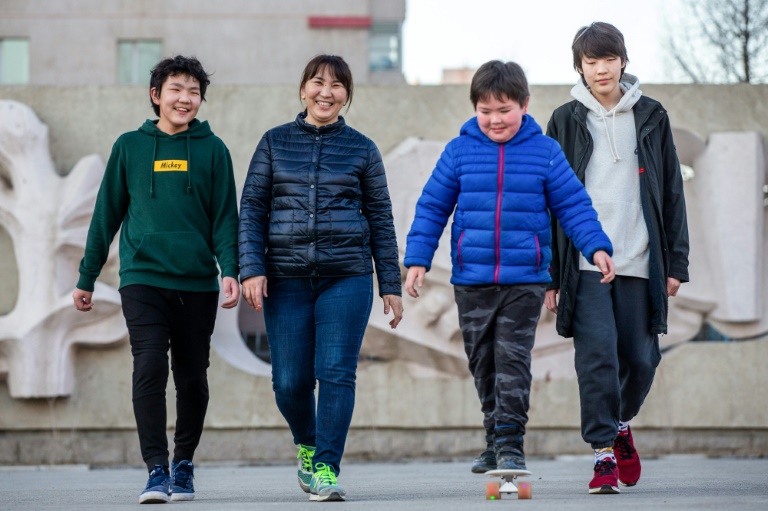Mongolia once guaranteed free childcare for working mothers under communist rule but decades after the landlocked country transitioned to democracy, some have been forced to choose between bribing nurseries or leaving their jobs to look after their young ones.
Women have been powering ahead in universities and the workforce in the landlocked Central Asian nation, but traditional expectations of large families are overburdening creaking infrastructure.
Ulaanbaatar, the capital, has severe school and kindergarten shortages after years of soaring birthrates and mass migration as nomads move to urban lifestyles.
The city has even launched an online lottery where lucky recipients can “win” a kindergarten enrolment.
Amudariya Tsogtbazar, a 36-year-old single mother, said her son won a childcare place — but her daughter wasn’t so lucky.
“So, I bought a laundry machine for my son’s kindergarten in order to enrol my daughter as well,” she said.
In the early 1990s, as Mongolia abandoned communism, political uncertainty precipitated a drop in the birthrate and state kindergartens were sold off to private buyers.
By the time the birthrate began ticking up again, land availability was low and childcare facilities not replaced.
Nowadays, women with small children say a lack of childcare is the biggest reason for leaving employment, according to a paper from research group Partnership for Economic Policy.
In the years since 1992, the women’s employment rate has dropped from 72 percent in 1992 to 53 percent — despite the fact that most Mongolian university students are women.
A new system of free childcare has been introduced by the government but the research found that only around half the eligible children are actually enrolled due to a lack of facilities.
One official told AFP there are still hundreds of children every year who can’t get a place.
Adding to the challenge for working parents are staggered school start times plus children returning home for lunch breaks.
“It is exceedingly difficult to look after children and work at the same time,” said Bolortsetseg Bold, a 36-year-old mother of three who has recently given up work.
“You have to take them to school one by one, and when you get to work and start on your work, it is time to start collecting them again from school.”
Mothers are also having more babies now than during the early years of Mongolia’s democratic transition.
A high mortality rate among nomads in the past has long meant more children are seen as a safer option, said Tamir Chultemsuren, professor at the National University of Mongolia.
“Traditionally, we say that having only one child is the same as being childless,” he told AFP.
– ‘Honoured mother’ –
Further fuelling frustration is a sense that the government doesn’t understand the challenges faced by working mothers.
Anger reached fever pitch earlier this year when the prime minister made a speech that implied women who didn’t work were lazy.
“He showed that he just doesn’t understand the lives of regular people and he has no capacity to see the load women are carrying,” said mother Amudariya.
Even those who have managed to keep working are struggling under strict Covid-19 restrictions that have shuttered schools and kindergartens since early last year.
Mother-of-four Buyankhishig Railaabaatar was awarded a state medal for being an “honoured mother” with a large family.
But she has also bucked the trend by keeping her job after having children, and her mother-in-law helped her raise her two middle sons.
“My parents and in-laws have praised me for juggling all of that work, (as) a person who can do everything,” she said.
She has only just managed to keep the balance as Mongolia has taken some of the world’s toughest and most enduring measures against the Covid-19 pandemic.
Campaigners say the public health crisis has also further slowed investment in childcare resources.
Bolortsetseg was among those who have decided to give up work.
“I really wanted to keep working and earn my own money,” she said.
“(But) I was scared to leave my kids alone at home.”










